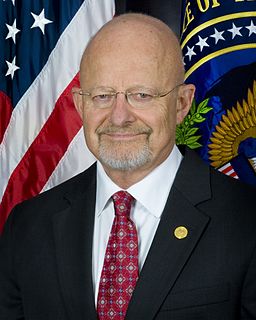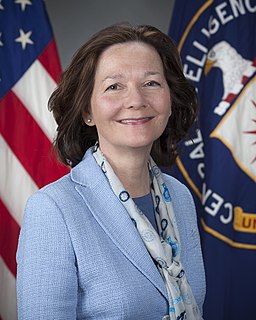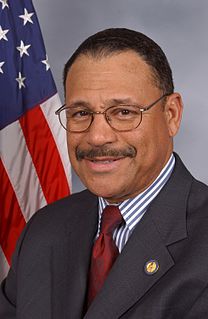A Quote by James Clapper
I've long maintained during my 50-plus year career in intelligence that leaks endanger national security, they compromise sources, methods, and tradecraft, and they can put assets' lives at risk.
Related Quotes
The president has a right to discuss his national security policies with the public. But that should be done in the light of day without endangering our sources or methods. The public has no need to know details about intelligence assets or special operations units. Such disclosures endanger those who protect us.
National security is a really big problem for journalists, because no journalist worth his salt wants to endanger the national security, but the law talks about anyone who endangers the security of the United States is going to go to jail. So, here you are, especially in the Pentagon. Some guy tells you something. He says that's a national security matter. Well, you're supposed to tremble and get scared and it never, almost never means the security of the national government. More likely to mean the security or the personal happiness of the guy who is telling you something.
One of the problems we have as a government is our inability to keep secrets. And it costs us, in terms of our relationship with other governments, in terms of the willingness of other intelligence services to work with us, in terms of revealing sources and methods. And all of those elements enter into some of these leaks.
In general, preliminary Force Protection information is shared throughout the national security community - and with U.S. allies - as part of our ongoing efforts to ensure the safety of coalition forces overseas. Leaks compromise and disrupt the critical interagency work to collect, assess, and ascribe culpability.
We have a media that goes along with the government by parroting phrases intended to provoke a certain emotional response - for example, "national security." Everyone says "national security" to the point that we now must use the term "national security." But it is not national security that they're concerned with; it is state security. And that's a key distinction.
Those who devise better methods of utilizing manpower, tools, machinery, materials and facilities are making real contributions toward our national security. Today, these ideas are a form of insurance for our national security; tomorrow, this same progressive thinking is insurance for our individual security-it is, in effect, job insurance.

































